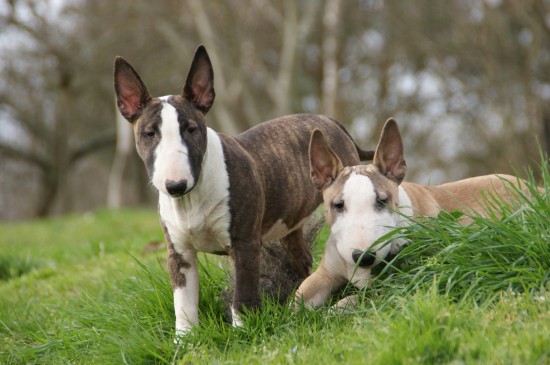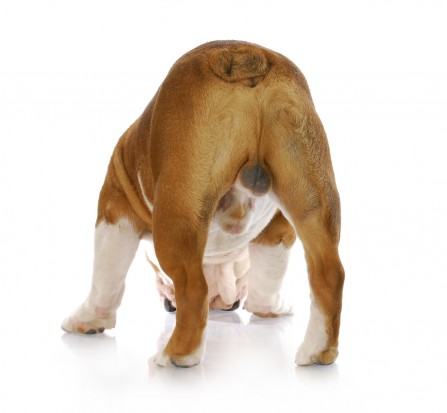
How to Housebreak Your Puppy
Housebreaking is the most indispensable thing your puppy must
learn. Common sense should tell you why. Do you want your house
to stay spic and span? Handle your puppy’s housebreaking well.
Aside from the maintenance of your household hygiene, trained
dogs are happy dogs. As creatures of habit, it’s in their nature
to keep schedules as pack animals. Here is how you should
housebreak your puppy:
Ideal Housebreaking Age
When your puppy reaches the age of 8 to 12 weeks old, it’s high
time to begin housebreaking. Remember that adage that old dogs
can’t learn new tricks? It is true so why take chances?
Crate Help
Dog trainers suggest using a crate in housebreaking your puppy.
A crate is like a cage, with see-through bars and a locking
door. Its size should accommodate well the dogs size for it to
move around in. It should be used like a dog’s bedroom. It is
advised to not confine your puppy in his crate for more than two
hours at a time.
The reasoning behind using a crate in housebreaking your puppy
is that dogs will not dirty their sleeping areas. However, he
may do so if you lock him in somewhere for longer than he can
hold it in. Never use a crate to punish your dog, it will
backfire. Generally, pups that are three-months old must
eliminate every 3 hours, so you should lead him to a special
outdoor comfort place more often.
Make Your Puppy Learn Routines
Another tip is to leave the house through one door only. This
door should be the one that you want your dog to scratch to warn
you about his being called by the nature.
Taking your pup out at around the same times every day will be
very beneficial for the both of you. This will help in
establishing a routine, and will make him learn to hold it in
until you become available to take him out.
Look For Clues
If your un-housebroken dog is accustomed to roaming freely
around the house, search for signs that show you he needs to do
it. Be really observant enough of his behavior, i.e., heavy
sniffing, circling an area, staring at the door with an intense
look on his face, etc. If you catch him WHILE doing it, stop him
with a quick grab of his collar and pull it up while saying “No”
using your deep, stern tone (don’t forget to use a deep, gruff
voice when stating commands). Then, take him outside and let him
finish what he is doing. Lastly, pat him on his head while
saying “Good (his name)!” It is a must to make your dog get used
to being praised whenever he does anything that makes you proud.
Giving him food as a reward when he does his business in the
appropriate spot can help, too.
Patience is a Big Virtue
Like any training endeavor, housebreaking requires a lot of
patience. If you definitely despise cleaning your dog’s waste
off your Persian carpets on an hourly basis and having your
whole house smell like a public bathroom, you want the
housebreaking to be successful in a wink of an eye, if not
sooner.
Common Sense Makes a Lot of Sense
The use of common sense will aid you big time in dealing with
your puppy’s housebreaking. Logical thinking should inform you
to not give your dog water before bedtime if his tendency is to
pee often at night time. Catering to his schedule first will
prove to be very helpful in making it gradually change into
yours.
Aside from patience and common sense, consistency is also one of
the important factors of this dog training activity. If you
suddenly forget about the routines yourself, don’t blame if your
dog if he starts committing accidents more often. Remember that
the stakes are high (dirty and malodorous house). If you would
like succeed in this housebreaking feat or just about in any
other training drills, don’t treat it as a game. Allot enough
time and commitment on your part.
Best of luck!
 Puppy Toilet Training
Puppy Toilet Trai
Puppy Toilet Training
Puppy Toilet Trai
 Vulnerable Uk Native Dog Breeds - The Terrier Group
Vulnerable Uk Nat
Vulnerable Uk Native Dog Breeds - The Terrier Group
Vulnerable Uk Nat
 Potential Problems With The Anal Glands In Dogs
Potential Problem
Potential Problems With The Anal Glands In Dogs
Potential Problem
 Pet Friendly Community in Dubai
Pet Friendly Community in Dubai
Notwithstandin
Pet Friendly Community in Dubai
Pet Friendly Community in Dubai
Notwithstandin
 How to Select Good Quality Foods for Dogs?
How to Select Good Quality Foods for Dogs?
Goo
How to Select Good Quality Foods for Dogs?
How to Select Good Quality Foods for Dogs?
Goo
Copyright © 2005-2016 Pet Information All Rights Reserved
Contact us: www162date@outlook.com